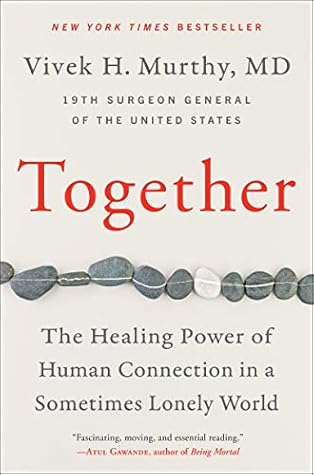More on this book
Community
Kindle Notes & Highlights
complex product of our genes, past experiences, current circumstances, the culture in which we live, and our personalities.
the more you feel alone, the more you assume that everybody hates you, so the less you try and reach out to people. It is a vicious circle.”
promiscuous connection with others can lead to death. A neural mechanism kicks in to make you a little skeptical or dubious about connecting.”
abusive
anxious in new social interactions
repeated or extended experiences of threat will actually change the brain.
neurobiological sensitivity to threat and rejection.”
rough upbringing,”
caution and wariness,
where personality comes in. Some people are naturally introverted.
They’re often content on their own and don’t mind observing rather than interacting with strangers. Loneliness only occurs when you want to connect and be accepted, but can’t, in this case because life has trained you to be afraid of being exploited or hurt by other people.
emotional and physical pain are both processed by the brain in very similar ways.
traditional Ethiopian culture stressed mutual support and friendship, in good times and bad.
I could see the world around me, but I was not part of it.”
when our social experience fails to meet our social expectations.
when something goes “wrong”
the way we “s...
This highlight has been truncated due to consecutive passage length restrictions.
Every Hutterite must accept the sect’s faith and submit to the spiritual authority of the community head minister. Hutterites who can’t or won’t adhere to these conditions face excruciating disapproval, which often compels them to leave.
take social isolation personally, as if being alone means “I’m not worth visiting.”
collective cultures,
so little room for individual development and expression
shunned or exiled.
opposing, and often demonizing, anyone who doesn’t embrace the tribe’s ideologies and rules.
traditional societies tend to be suspicious of outside influence, diversity, and change—not
“Real meaning and purpose in community,” Derek reflected, “comes from having a common cause, rooted in a common belief.”
posted a “Hi Neighbor” template letter on the city’s website for others to use as an outreach model.
Million Acts of Kindness program in the Anaheim Elementary School District.
bullying was radically reduced, and suspensions district-wide were cut in half.
her father’s postretirement years became busy and fulfilling,
men’s shed movement’s success is that it doesn’t require men to admit that they’re lonely.
parents the world over raise their sons to be tough and in control and to avoid acknowledging or talking about their feelings.
One emotion that this model allows men to express is anger. That’s because anger so often ignites displays of power and toughness. As such, it’s one of the few emotions a man can express and still feel masculine. But unlike feelings such as sadness, joy, and love, which invite sympathy and comfort, anger tends to push others away. So the more “manly” a
boy appears, the more emotionally disconnected he can become from others.
women have blurred their sense of self in service of those relationships.
culture was bundled up with fear of known threats and others who might be hostile. As a result, our wiring signals us that we need to belong to our people in order to feel safe, and that we need to avoid or shun others, for fear they can’t be trusted.
see them contributing to xenophobia, racism, and political hostilities.
It turned an authentic act of expression into a hollow exercise. Chasing
smoking marijuana and bullying do far more damage than use of digital technology.
These poses, in fact, are a form of social withdrawal. They may let us pretend that we’re more accepted, but the pretense only intensifies our loneliness.
likens it to college for older people. “You’re going to get out of it what you put in.”
easy to dismiss people for their beliefs or affiliations when we don’t know them as human beings. The result is a spiral of disconnection that’s contributing to the unraveling of civil society today.
our beliefs are grounded in love, while our opponents’ are based on hatred.
sap the energy we have available for constructive engagement.
we’re much more likely to seek and accept compromise if we can identify with the people on the other side of a dispute.
dig in our heels and demand an all-or-nothing
“We need to befriend,”
not to try to change their mind, “not to try to put forward your view or hear them so you can develop better arguments.”
meet and find common ground so that you can build the trust you need
Listen to understand. Speak from the heart.
Moving together against gravity.


